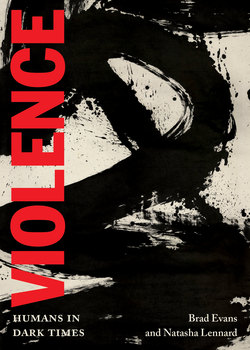Violence

Реклама. ООО «ЛитРес», ИНН: 7719571260.
Оглавление
Brad Evans. Violence
VIOLENCE
Отрывок из книги
PRAISE FOR VIOLENCE: HUMANS IN DARK TIMES
“Many of us live today with a pervasive sense of unease, worried that our own safety is at risk, or that of our loved ones, or that of people whose bad circumstances appear to us through networked media. Violence feels ever-present. Natasha Lennard and Brad Evans help us to analyze those feelings, talking with a wide range of thinkers in order to gain insight into the worst of what humans do, and challenging us to imagine a world in which violence is no longer a given. Their book is full of surprising insights and intelligent compassion.”
.....
Such approaches are in fact incapable of answering the ethical question “when is too much killing enough?” Just as there is no clear line to be drawn concerning levels of tolerable casualties, can we justify the acceptance of 1,000 deaths but declare 1,001 too many? Each form of violence needs to critiqued and condemned on its own terms. Only then can we think of breaking the cycle of violence by moving beyond overtly politicized dichotomies as good and bad, just and unjust, tolerable and intolerable, that rely upon such quantifiable derivatives.
Pinker’s specific claims are historically dubious in respect to the relationship between liberalism and violence. What is more, the classifications he uses conveniently fit his preexisting normative positions and worldviews. Yet, as we know, what actually constitutes an act of political violence is intellectually fraught and deeply contested. The recent mass shootings in the United States, for example, illustrate how both the naming and quantification of violence remain loaded with political determinism. While some incidents, like the massacre in Colorado Springs, continue to be narrated by focusing on the mental health of the individual perpetrators—hence avoiding any broader systemic critique of gun laws, political allegiances, and religious beliefs, et cetera—others, such as the recent attack in San Bernardino, immediately connect individuals to broader historic forces.
.....